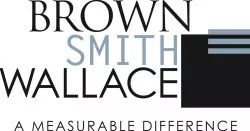Accounting for variable interest entities (VIEs) continues to be a source of frustration for private companies and their accountants. The Private Company Council (PCC) of the Financial Accounting Standards Board (FASB) supports an effort that would carve out private companies from having to follow the complex VIE guidance in the standard for consolidated reporting.
Consolidation Headaches
Private companies have long complained that the VIE guidance in Topic 810, Consolidation, is overly complex and results in different companies in similar situations coming to different accounting conclusions. Others say the guidance leads to consolidated reporting in situations where it's not warranted, which then forces lenders and creditors to break down balance sheets to understand a private company's financial position.
Many private company financial statement users believe consolidation on the basis of VIE guidance distorts a private company's financial results. Assets held by a lessor are generally beyond the reach of the lessee's creditors, even in bankruptcy or other receivership. In fact, lenders and other stakeholders often request a consolidating schedule that enables them to reverse the effects of consolidating the lessor entity when they receive consolidated financial statements.
Simpler Rules for Private Companies
The FASB issued Accounting Standards Update (ASU) No. 2014-07, Applying Variable Interest Entities Guidance to Common Control Leasing Arrangements, based on input from the PCC. The update attempted to ease the consolidated reporting requirements of lessors in certain private company leasing transactions.
Under the updated guidance, private companies don't have to apply the VIE model when certain conditions are met. Instead, private companies can just disclose the nature and potential financial risks of these arrangements. The updated guidance also requires lessees to disclose a qualitative description of any circumstances that could require them to provide financial support to lessors.
Last December, the PCC discussed the idea of crafting new examples and illustrations to make the updated guidance easier to apply. The plan was to come up with six to eight examples and then take one or two formal meetings to finalize them.
Those meetings revealed that even the FASB staff was unclear about how to use the existing VIE guidance, which is based largely on an assessment of power. Whoever is in power is the parent entity that must consolidate, or report on its balance sheet, its holdings. In certain private company transactions, there are no formalized arrangements, the parent can change, and there is little to no paperwork to back up decisions.
Possible Exception in the Works
In September, the PCC unanimously voted in favor of the FASB granting private companies an exemption from following the VIE guidance in Topic 810. Private companies would still have to consider other guidance in Topic 810. For purposes of the potential scope exception, a parent company, on a stand-alone basis, and its consolidated subsidiary aren't considered under common control.
"The overall concept we're trying to get at [is], if the parent company on top has a controlling financial interest in the entity, that parent should consolidate — I think that's a no-brainer," said FASB assistant director of technical activities Matthew Esposito. In regard to lower-tier entities in which no one by itself has a controlling financial interest, Esposito said, "Let's not force consolidation on any one of those entities. That's what GAAP does today, and that's what people are struggling with."
Some PCC members have suggested making consolidation optional for private entities that believe consolidation is more appropriate for their stakeholders. Others would like safeguards to prevent companies from using the exception to avoid reporting VIEs or to mislead investors.
Stay Tuned
The FASB plans to formally discuss the VIE exception early in 2017. If the FASB were to finalize this plan, it would rescind ASU 2014-07 and could make common control leasing arrangements more attractive as an alternative form of estate planning or investment tool.
If you have questions about the VIE exception, contact Dan Ward, Principal, Audit Services, at 314.983.1237 or dward@bswllc.com.
The content of this article is intended to provide a general guide to the subject matter. Specialist advice should be sought about your specific circumstances.

